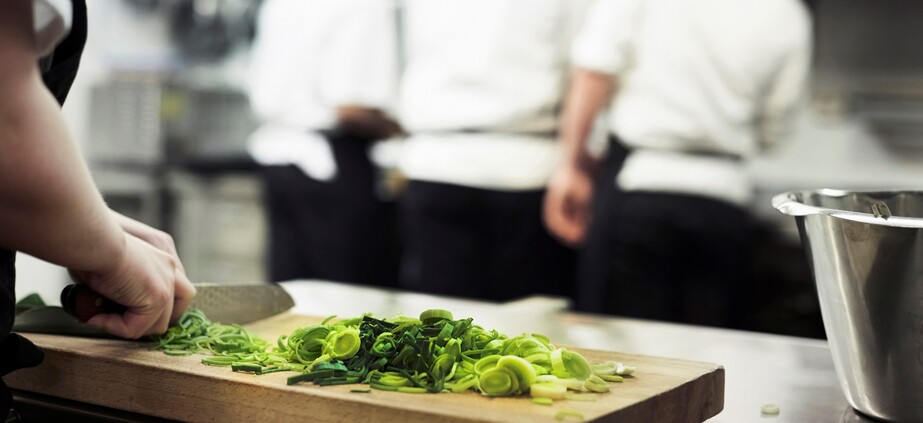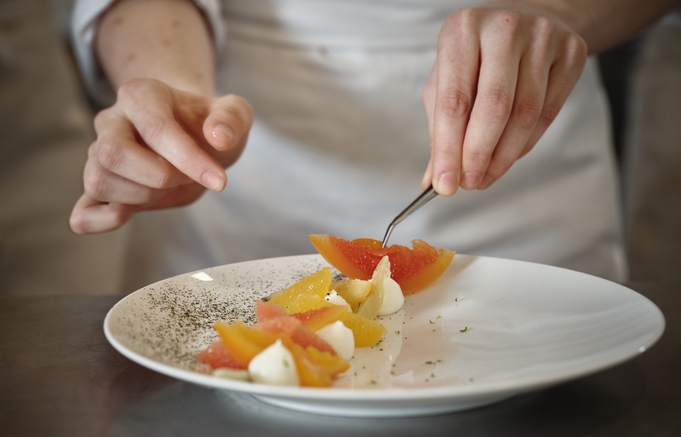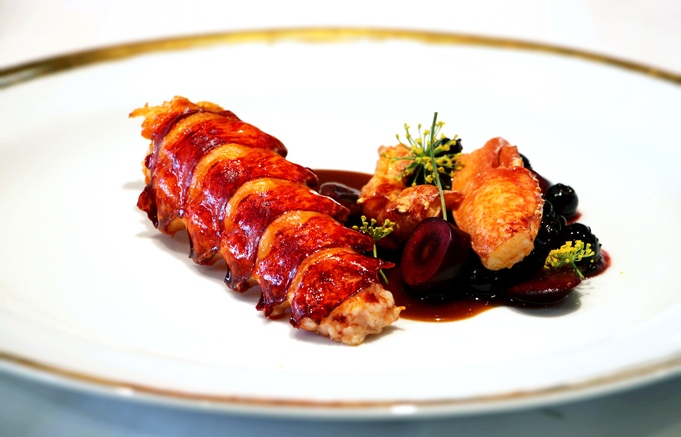How to succeed in food-related careers

Are you passionate about all things culinary? Are you searching for a career that satisfies your appetite for creativity and innovation? Look no further than food-related careers. Whether you dream of becoming a renowned chef or a food scientist pushing the boundaries of taste and flavor, the world of food offers a delectable array of possibilities.
When contemplating food-related careers, you may think of more traditional occupations, such as professional chef or restaurant manager. However, the food industry offers a wonderfully diverse range of culinary careers, from culinary arts to food nutrition. This article will help you understand the benefits of a food-related career, what is required to pursue a food industry career and what a food career path will involve.
Overview of food-related careers
Food-related careers offer diverse opportunities for passionate individuals in the culinary world, ranging from chefs and food consultants to media influencers. The food industry beckons with an array of captivating career paths for individuals who harbor a love for all things culinary. Whether you yearn to know more about how to become a chocolatier or you want to embark on the thrilling journey of establishing your own bed and breakfast, the world of culinary careers holds boundless possibilities.
A food industry career presents many avenues for advancement. From starting as a line cook or chef to becoming a restaurant owner or food consultant, the restaurant industry offers a diverse range of roles to suit many interests and aspirations. With experience and expertise, professionals can also explore opportunities in food media, writing cookbooks or becoming culinary instructors.
Benefits of studying at a world-renowned culinary school
Studying at a culinary school offers significant benefits for anyone interested in food related careers. It provides a structured and comprehensive curriculum as well as hands-on training, exposure to diverse culinary techniques and mentorship from experienced chefs. There are also specialized culinary schools, such as pastry schools, if you want to study a particular area of the hospitality industry.
Additionally, culinary schools can often offer internships and job placement assistance to help students start food industry careers. Figures from the National Restaurant Association found 90% of restaurant managers and 80% of restaurant owners worked their way up from entry-level roles in a food company, so getting a placement working for a food business is a crucial first step in any culinary career.
Essential skills for food-related careers

A successful food and beverage industry career requires a combination of skills, from culinary expertise and creativity to time management and food safety. Mastering culinary techniques, fostering creativity, adapting to changing trends and honing business acumen are vital. You'll also need to combine passion with resilience, teamwork and a hunger for continuous learning to unlock the potential for a fulfilling and influential journey in the culinary world.
Culinary arts
Culinary arts refers to preparing, cooking and presenting food. It offers opportunities for chefs to showcase their skills, innovate and create unforgettable dining experiences. It demands precision, attention to detail and the ability to adapt to ever-evolving culinary trends. To succeed requires dedication, continuous learning and inspiration.
A culinary art career encompasses traditional and diverse food industry career paths, from pastry chef and baker to recipe development and menu planning. By embracing your passion for the culinary arts, you open the door to a world brimming with possibilities, where you can transform your dreams into tangible realities and make an indelible mark on the world through the universal language of food.
Food service and hospitality
A career in food service and hospitality allows individuals to combine their love for food with business acumen, creating memorable dining experiences and contributing to the vibrant world of hospitality. From front-of-house roles to behind-the-scenes operations, there are many opportunities.
Careers in food service and hospitality encompass many different positions. From restaurant management and sommelier expertise to the artistry of bartending, food and beverage directorship and hotel and resort management, the industry offers diverse opportunities. Event planners, catering managers, wine educators and restaurant critics also play pivotal roles in shaping memorable experiences.
Food media and communication
The food media and communication industry is where creativity and culinary passion converge. It offers endless opportunities to share stories, recipes and experiences that inspire and engage audiences. Embrace the power of storytelling, hone your craft and create meaningful connections through the captivating world of food.
A career in food media and communication allows you to blend creativity and culinary expertise. As a food writer, blogger or cookbook author, you can craft tantalizing narratives. As a food photographer and videographer, you capture mouthwatering moments. As a food editor, stylist or critic, you shape and analyze culinary experiences, immersing audiences in the captivating world of gastronomy.
What is the difference between a food stylist and a chef
While both food stylists and chefs work with food, their roles differ significantly. Chefs focus on the physical creation of food, while a food stylist specializes in the visual presentation of food, using artistic skills to make dishes appear enticing for photography or film.
Food science and research

From food product development to research, the science of cooking explores ingredients, flavor profiles and culinary techniques. Food scientists and researchers enhance food safety, quality and nutrition. They also develop innovative food products, study food preservation methods and analyze taste and texture.
Careers in food health and nutrition provide opportunities for individuals passionate about the intersection of science and nourishment. Roles such as food scientist, research chef and product developer focus on creating nutritious and delicious food products. Food safety specialists ensure consumer well-being, while food technology looks to enhance food quality and nutritional value.
Health and nutrition
There are numerous employment prospects in the health and nutrition industry. It is a fantastic career choice if you're interested in health, agriculture and food. This work means you can help people make informed decisions about their well-being.
A career as a nutritionist, for example, allows you to play a role in promoting wellness by providing dietary guidance and education. Alternatively, farming allows you to cultivate nutritious produce and contribute to sustainable agriculture practices, fostering healthier food systems. By focusing on sustainability, you can explore roles in food policy, advocating for environmentally friendly practices and ensuring the availability of nutritious options.
A career in health and nutrition has many benefits, both personally and professionally. By pursuing this path, you can become a catalyst for positive change.
What are the educational requirements for various food-related careers?
Educational requirements for food-related careers vary based on the specific field. Some positions, such as chefs and bakers, may require formal culinary training or a culinary arts degree. Other roles, such as food scientists or nutritionists, typically require bachelor's or master's degrees in relevant fields. However, practical experience, apprenticeships and certifications can also play a significant role in advancing a career in the food industry.
Kick-start your culinary adventure
Master culinary arts essentials through hands-on experience and expert guidance so you can make your mark in the industry or become a successful food entrepreneur.
Apply for our Bachelor in Culinary Arts to embark on your journey in the food industry.
How can I transition into a food-related career from a different industry?
 Hispanolistic/E+ via getty images
Hispanolistic/E+ via getty images
Transitioning into a food-related career from a different industry requires passion, dedication and strategic steps such as gaining culinary experience, networking and pursuing relevant education or training opportunities.
For those seeking something different from traditional chef roles, embracing an alternative career path allows you to diversify your skills, provides fresh challenges and opportunities and allows you to expand your skills and horizons. There are a host of alternative careers for chefs, from culinary instructors to food critics, cookbook authors or operating restaurants. The possibilities are endless.
Perfection in pastry
Whether you're a high school graduate or want a career change, this program distinctively blends the pastry arts with key managerial skills so you can excel in this delicious field.
Discover how our Bachelor in French Pastry Arts can transform your career.
Conclusion
There are many factors to take into account when thinking about a career in the food sector, from choosing your preferred culinary path to making sure you complete the educational requirements.
A career in the food industry offers routes for exploring and developing your culinary passions, whether you want to learn how to start a bakery or are interested in the exhilarating world of pastry chefs or food media. The options for advancement in food industry careers are as endless as your creativity.
Photo Credits
Main Image: Maskot/Maskot via getty images


